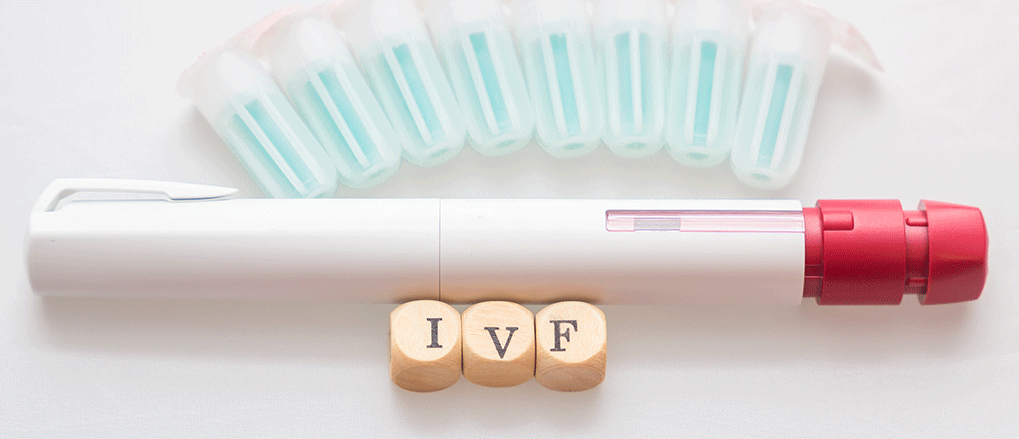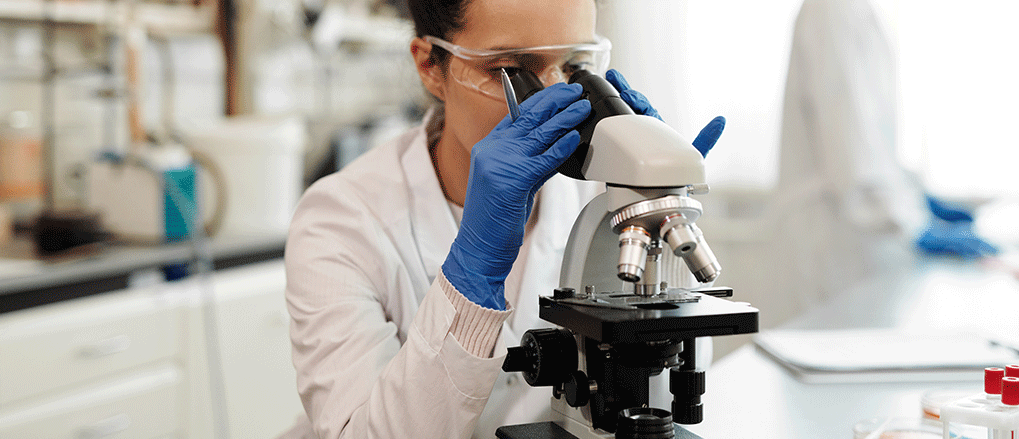Everything You Need To Know About In Vitro Fertilization

In Vitro Fertilization is a great option for those who have been trying to conceive and have either exhausted all their other options or have medical issues that prevent them from using other resources like artificial insemination. But In Vitro Fertilization is both expensive and has a lot of information
This will be your one-stop-shop for everything you need to know about In Vitro Fertilization from costs, to what you can expect, and more.
What is In Vitro Fertilization?
In Vitro Fertilization has become a little more well-known than in previous years because of its higher success rate at solving infertility issues. It is a procedure somewhat similar to artificial insemination where an embryo is made outside of the body by combining eggs and sperm in a laboratory until the embryo is made. Once the embryo is good to go it is injected back into a woman’s uterus.
Despite being one of the more well-known infertility treatments on the market only about 5 percent of couples seek it out because of how expensive it is. IVF sometimes becomes the last resort option as some of the other infertility treatments may work just fine.
Why Is In Vitro Fertilization Done?

Sometimes IVF is the last resort option but it is also sometimes the first option because of certain medical histories or problems that can cause infertility in either a woman or a man.
In Vitro Fertilization can treat the following health complications:
- Endometriosis
- Fallopian Tube/Uterus Issues
- Low Sperm Count
- Ovulation Issues
- Genetic Diseases
- Poor Quality Eggs
- Antibody Issues that Harm Eggs/Sperm
- Other Undefined Issues
How To Prepare For In Vitro Fertilization

In Vitro Fertilization is a process that on top of pregnancy can take somewhat of a toll on the women receiving it. Because IVF is not a guaranteed process you should do everything you can to prepare your body for what is to come and set yourself up for the highest chances of fertilization.
You can do that by following some of the guided advice experts give out.
Take Care Of Your Diet
In the weeks leading up to your IVF treatment is always a good idea to eat a healthy balanced meal with lots of nutrient-rich foods. This will be because your body will need strength if the IVF process works and you conceive!
A healthy diet in several small studies has been shown to help increase the chances of IVF taking.
So, what is a healthy diet?
If you adhere to a balanced diet you will want to eat your colors. That means tons of fresh fruit and vegetables. Protein is important too so eating lean proteins like fish and poultry is great as well. Don’t skip out on your carbs! Whole grains like brown rice and quinoa will give you the energy you need.
Keep Up Exercise
Some women in preparation for the IVF or during the IVF will give up exercise because they are worried about it affecting their process. The truth is you should maintain or keep up your workouts. Once the IVF process starts, consider moderating your workouts to not push yourself to extreme stress levels as it is not good for you or the baby.
You can continue things like:
- Lifting weight
- Hiking
- Jogging
- Spin Class
- Elliptical
Whatever you do it should be done in moderation like mentioned. When you overdo it’s simply too much stress for the body to continually focus on recovering.
Cut Out The Chemicals
It’s very important that you cut out some of the chemicals that will interfere with your hormone health. You may be thinking, “I don’t put chemicals in my body.” But in reality, many chemicals can be considered Endocrine-Disrupting Chemicals and unfortunately can leave an impact on your hormones, reproductive health, and prenatal development.
Here are some of the major chemicals to avoid that fall into this category:
- Formaldehyde: Can be found in nail polish.
- Parabens, Triclosan, Benzophenone: Can be found in skincare, makeup, moisturizes, and other products that go on your skin.
- BPA and Phenols: Food and water packaging materials.
- Brominated Flame Retardants: Can be found in furniture, clothing, electronics, yoga mats, and more
- Dioxins: Can be found in meat, dairy, and art clay.
- Phthalates: Can be found in plastic, medication coatings, cosmetics that have fragrances.
- Perfluorinated Compounds: Can be found in stain-resistant materials and non-stick cooking tools.
Medications
Likely your doctor will help out with advice when it comes to your medications. Having said that you may be surprised to find a lot of over-the-counter medications can interfere with your process with IVF.
Here are some basic things you should let your doctor know you are taking:
- Allergy pills
- Tylenol/Ibuprofen or any acetaminophen
- Supplements
- Prescriptions of any sort
This is because these medications can cause hormonal changes and make the IVF treatment less effective. With IVF you also will take certain medications which could potentially be interfered with any other medication you are taking.
How Is In Vitro Fertilization Performed?

IVF has its process from pre-injection to the end where hopefully the embryo implants itself in the uterus. It can be difficult for some people to understand how this process goes so let’s break down a general step by step so you know what to expect.
- You will have a medical exam of your ovaries and fallopian tubes to make sure that your body can go through the process.
- You will then start taking fertility drugs that will stimulate your ovaries so that your eggs can be matured and eventually be retrieved. The more eggs the better chance you have at pregnancy.
- Your doctor will retrieve the appropriate number of eggs based on maturity. This will be done thirty-four to thirty-six hours after you received the shot to trigger the stimulation.
- The eggs then will go to the lab and be placed within an incubator. Then they will be fertilized with sperm.
- Sometime between the next 106 days, the embryo transfer will happen. The embryo will then hopefully implant itself to the uterus within 1-2 days of the transfer.
- It’s recommended to wait about 12 days after the embryo transfer was initiated to take a pregnancy test. At this time, you can take the test!
In Vitro Fertilization Risks
As with any procedure, there are risks. It’s also really good to keep in mind that the In Vitro Fertilization process is not guaranteed. While it does produce some of the higher results among fertilization processes, there is never a guarantee it will work. Often couples must try a few times.
Some of the risks with IVF include:
- Interestingly enough IVF has been known to produce multiple births like twins, triples, or more. This in itself always carries a higher risk for early labor and low birth weight.
- Ovarian Hyperstimulation Syndrome is when the ovaries can become swollen and painful from having to be stimulated and produce more eggs.
- Miscarriage rates are similar between natural conception and IVF. However, women who may be using IVF for age purposes may find that miscarriages are more common in older women.
- Stress because of financial hardships is a common risk with IVF. It does not come directly from the IVF process rather from the money spent on the process.
In Vitro Fertilization FAQs
So much information can be easily missed when it comes to In Vitro Fertilization. Learning every little detail may be stressful but getting down the basic concept and information about the process is important.
Here are the most common questions that come to mind when wondering about In Vitro Fertilization.
What Are The Success Rates For IVF Treatment?
Whether your IVF treatment is successful or not will depend on a few different factors like your age, ovaries, fallopian tubes, and lifestyle. Specifically, with age, we can look at decreasing numbers as a woman approaches her mid-thirties and up.
- Women under the age of 35 saw a 53.9 percent success rate.
- Women between the ages of 25 and 40 saw a 40.2 percent success rate.
- Women between the ages 41 and oversaw a 3.9-12.6 percent success rate.
The more high-quality fertilizable eggs you offer the better chances you have at having a successful embryo develop. It can also be said that the healthier your fallopian tubes are the better your success rate percentage.
A healthy lifestyle can always be linked to having better chances with IVF. That’s why managing stress, eating healthy, and staying relatively fit can be helpful in preparation.
When and What Prenatal Vitamins Should I Take?
You should start taking prenatal vitamins in either of the two events.
- You are trying to get pregnant.
- You have discovered you are pregnant.
This is because prenatal vitamins are such an important source of nutrients to help your baby grow and keep you feeling good and healthy.
The prenatal vitamins you want to be taking should have the following key ingredients that are essential for you and your baby’s health.
- Folic Acid: Vitamin B is responsible for the health of your baby’s brain.
- Iron: This supplies the fetus with blood and oxygen.
- Calcium: For the baby to not steal any calcium from the bones this supports their growing teeth and bodies.
There are other great nutrients in prenatal vitamins but these are the ones you want to look out for.
Are There Specific Immunizations That I Should Take?
Your doctor is ultimately going to be the person to tell you what you should and shouldn’t take. Most of the time the flu shot and now the COVID vaccines are recommended because it protects you from getting sick while being pregnant and also protects the baby. But before scheduling any of these vaccines you need to check in with your doctor.
If you have a reactive history or any medical things that could complicate getting any vaccinations they will know and ultimately decide if it is safe for you to take.
Are There Many Side Effects With The IVF Process?
It is possible that the hormone shots will ramp up similar side effects you get with your period or if you were to be pregnant already. Not every woman experiences these symptoms but the following side effects are common.
Look out for:
- Breast Tenderness
- Mood Swings
- Headaches
- Nausea
- Abdominal Pain
- Bloating
- Bruising (Site of Injection)
- Fatigue
Go Over The Information
Being able to conduct your research and reading all of this info is a great first step in learning about In Vitro Fertilization. There is so much to know and it is ultimately both exciting and can be nerve-racking to start the infertility treatment process.
While many of the same procedures and steps will be standard across all women it is still best to speak with your doctor. This is because IVF still has a fair share of variables and customizable paths to ensure the treatment works best for you and your body. Your doctor will want to be ultra-aware of any of the medications you are taking and may switch them up for you.
They also can give you great suggestions for dietary needs and really let you know what you will expect when starting the process. Most importantly they can also go over the financial plan with you because IVF processes can vary from state to state.
Don’t wait to start your planning process! Get ahead and start today!





